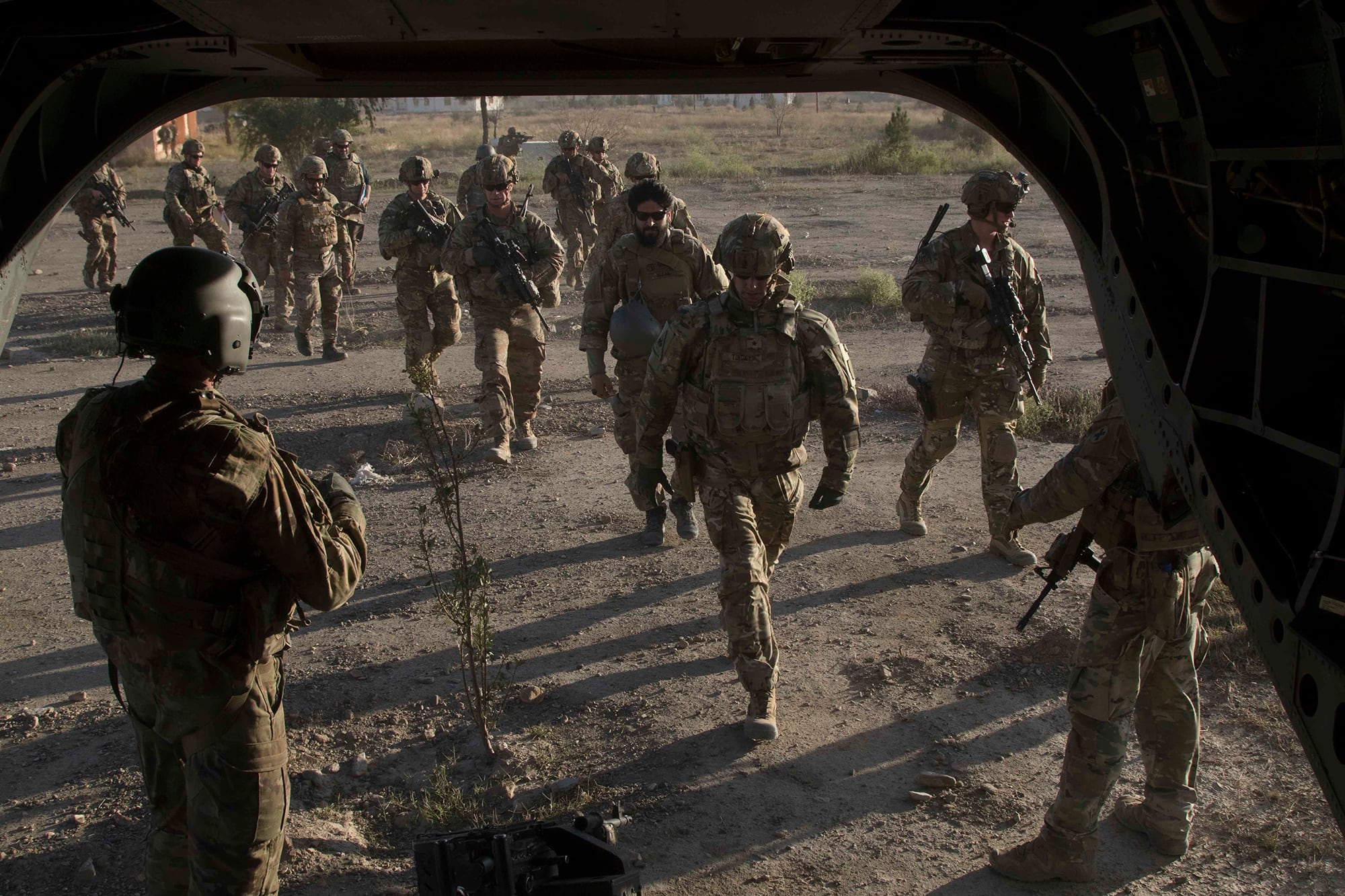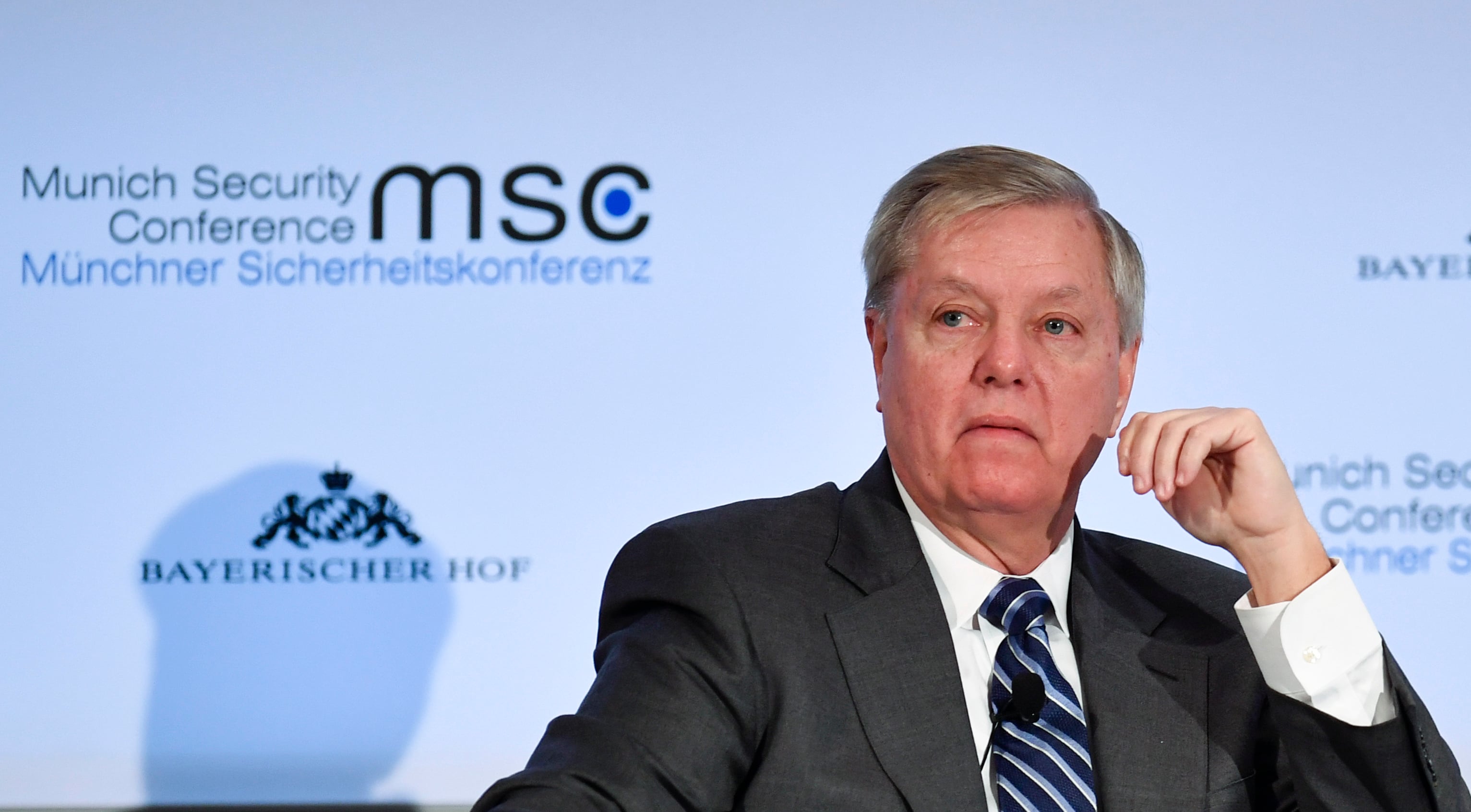WASHINGTON ― Tuesday’s announcement of upcoming sharp drawdowns of U.S. forces in Afghanistan in Iraq drew mixed reaction from lawmakers on Capitol Hill, with Republican and Democratic critics both warning that abrupt changes could lead to instability in the region.
“There’s a right way and a wrong way to do this. President [Donald] Trump is once again choosing the wrong way,” Senate Armed Service Committee ranking member Jack Reed, D-R.I., said in a statement following the announcement. “We can’t let U.S. national security and our relationships with steadfast partners become a casualty of President Trump’s wounded ego,”
On Tuesday afternoon, acting Defense Secretary Christopher Miller said the U.S. will draw down its troop levels to 2,500 in both Iraq and Afghanistan by Jan. 15. Currently, about 4,500 troops are deployed to Afghanistan and 3,000 in Iraq.
National security adviser Robert O’Brien later told reporters that the White House hopes all troops will be withdrawn from both countries by next May.
“Four years ago, President Trump ran on a promise to put a stop to America’s endless wars,” O’Brien told reporters. “Today, as was just announced at the Pentagon, he is keeping that promise to the American people.”
RELATED

Several prominent members of Congress praised the president’s move as a boost for national security. Senate Armed Services Committee Chairman Jim Inhofe, R-Okla., said the personnel shift would keep “the right military footprint in Afghanistan to perform counterterrorism missions and support our allies and Afghan partners” while also bringing troops home.
“[Trump’s] military strategy has always reflected conditions on the ground, rather than being tied to an arbitrary calendar like his predecessor,” Inhofe said.
Another SASC Republican, freshman Sen. Josh Hawley of Missouri, hailed the move as a departure from misguided “nation-building” and said that working Americans “deserve to see their tax dollars actually being used to defend them ― from Chinese domination, above all ― or reinvested at home, in their families and communities.”
But critics of the moves questioned the strategic significance of the Jan. 15 timing — five days before President-elect Joe Biden is scheduled to take over as commander in chief.
On Monday, Senate Majority Leader Mitch McConnell, R-Ky., questioned the then-rumored decision and cautioned the White House not to rapidly withdraw needed personnel from the hot spots.
“A rapid withdrawal of U.S. forces from Afghanistan now would hurt our allies and delight the people who wish us harm,” he said on the Senate floor. “Violence affecting Afghans is still rampant. The Taliban is not abiding by the conditions of the so-called peace deal.”

House Armed Services Committee ranking member Mac Thornberry, R-Texas, was blunter in his assessment after Tuesday’s announcement.
“I believe that these additional reductions of American troops from terrorist areas are a mistake,” said Thornberry, who is retiring at the end of the year. “Further reductions in Afghanistan will also undercut negotiations there. The Taliban has done nothing — met no condition — that would justify this cut.”
Sen. Lindsey Graham, R-S.C., worried security conditions in Afghanistan would deteriorate and argued that a counterterrorism force in Afghanistan is “an insurance policy against another 9/11."
“It is not in America’s interests for Afghanistan to sink back into civil war, as that is a ripe opportunity for ISIS and al-Qaida to reemerge in force," Graham said in a statement, using an acronym for the Islamic State group.
But Libertarian Rep. Justin Amash, who has long called for an end to the war, criticized Trump for not making these moves earlier in his term, calling it an “acknowledgment that President Trump will not fulfill his promise to end these wars.”
“Perpetual war continues,” the Michigan representative said on Twitter. “By not bringing these wars to an end, Trump has made it politically easy for Biden to ramp up troop levels in just a few months and undo any progress made.”
House Armed Services Committee Chairman Adam Smith, D-Wash., a frequent critic of Trump, said he supports the force reductions but cautioned that “this reduction must be responsibly and carefully executed to ensure stability in the region.”
“It is clear that groups like ISIS-K and the Taliban will continue to fight and sow chaos, but ultimately it is up to the Afghans to find a sustainable path to peace,” he said, referring to the ISIS cell in Khorasan, a region in Iran, Turkmenistan and Afghanistan. “It is critical that we coordinate the drawdown closely with our allies, as well as our partners in the Afghan government, to protect our interests and those of our allies in Afghanistan.”
Smith’s committee is scheduled to hold a hearing Friday concerning the ongoing military mission in Afghanistan. The event features several outside national security experts — including Ryan Crocker, former U.S. ambassador to Iraq and Afghanistan — but no current administration officials.
RELATED

Other Democrats questioned whether the motivations behind the troop drawdown had more to do with ending the 18-plus-year war in Afghanistan than Trump’s personal whims.
“We need to bring our troops home, but we must do so as part of a strategy that does not jeopardize the safety of Americans in the U.S. and abroad,” said Sen. Tim Kaine, D-Va., a member of the Senate Armed Services Committee. “There was no doubt the final days of this administration would be tumultuous, but the haphazard nature of President [Donald] Trump’s decision will harm our national security and jeopardize countless American, Afghan, and Iraqi lives.”
Sen. Ben Sasse, R-Neb., echoed that sentiment.
“Headlines about ‘bringing the boys home’ sound good, but that’s not what’s happening,” he said. “I fear this weak retreat is not grounded in reality and will make the world a more dangerous place.”
Officials from the Biden transition team did not offer an immediate reaction to the drawdowns.
Leo covers Congress, Veterans Affairs and the White House for Military Times. He has covered Washington, D.C. since 2004, focusing on military personnel and veterans policies. His work has earned numerous honors, including a 2009 Polk award, a 2010 National Headliner Award, the IAVA Leadership in Journalism award and the VFW News Media award.
Joe Gould was the senior Pentagon reporter for Defense News, covering the intersection of national security policy, politics and the defense industry. He had previously served as Congress reporter.








